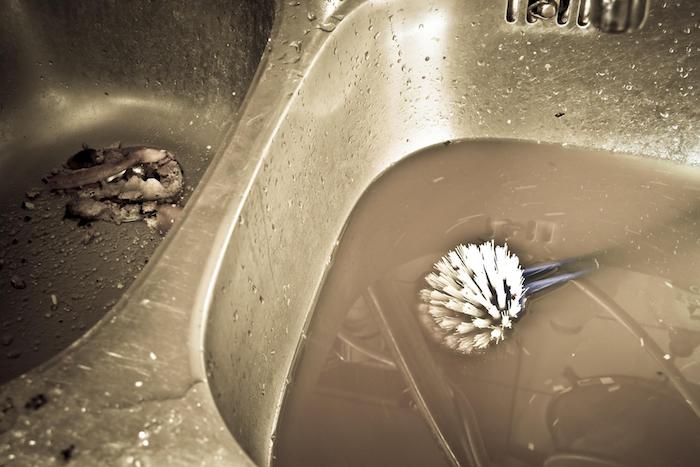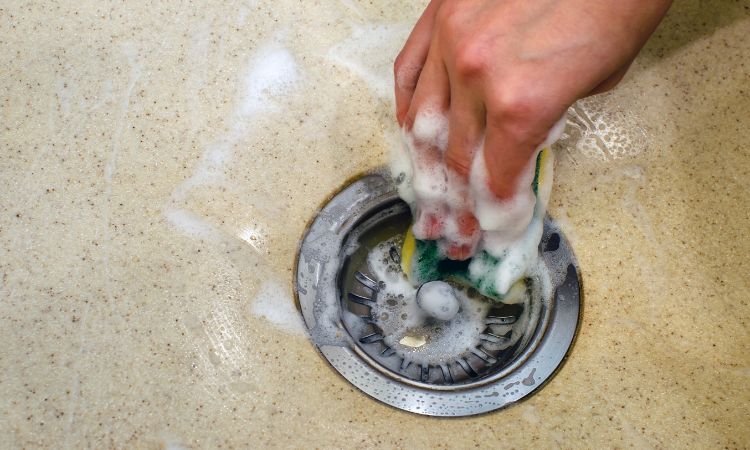Effective Tips For Correcting A Slow-Draining Sink
Effective Tips For Correcting A Slow-Draining Sink
Blog Article
We have found the article involving Three Common Ways to Fix a Slow Drain listed below on the net and thought it made good sense to write about it with you on this page.

Introduction
We have actually all existed: You're brushing your teeth or cleaning your hands, and you observe the water pooling in the sink. As opposed to swiftly swirling away, it sticks around, turning your once-refreshing morning routine right into a mini swamp scene. A slow-draining sink isn't simply annoying; it's usually a sign of bigger pipes concerns lurking below the surface area. The bright side is that most slow-draining sinks can be taken care of with a little expertise, a few fundamental tools, and some persistence. Prepared to tackle this project head-on? Let's roll up our sleeves and dive right in.
Understanding the Root Causes Of a Slow-Draining Sink
Before you start poking around in your pipes, it aids to know what might be causing the stagnation. Recognizing the source makes it simpler to pick the appropriate solution.
Devices and Materials You'll Need
The right devices make all the distinction. The good news is, you will not need a completely equipped plumbing professional's van to finish the job.
Step-by-Step Overview to Taking Care Of a Slow-Draining Sink
Now, let's enter the nitty-gritty. This step-by-step process will lead you through basic strategies to restore your sink's drainage.
Step 1: Get Rid Of and Tidy the Stopper
Commonly, the stopper (that tiny plug you push down to block water) is the very first culprit. Remove it very carefully and wipe any kind of hair or crud entraped around its base. Wash it thoroughly before placing it back in position.
Action 2: Make Use Of a Bettor to Remove Debris
Got that plunger ready? Position it over the drain and offer it a few firm pumps. The idea is to create suction that can loosen up any kind of blockage. If you see bits of particles drifting up, you're on the ideal track.
Step 3: Try a Drain Snake or Cable Hanger
If the bettor does not do the trick, it's time to highlight the drainpipe snake. Delicately feed it right into the drainpipe and twist as you go. You might really feel some resistance-- that's likely the blockage. Keep turning and pulling up until you remove the blockage. If you do not have a drainpipe snake, a straightened out cable wall mount can work in a pinch.
Step 4: Use a DIY Drain Cleanser
An all-natural cleaner made from baking soda and vinegar can break down recurring gunk. Put half a cup of baking soft drink right into the drainpipe, adhered to by half a cup of vinegar. Allow it fizz for around 15 mins, then flush with warm water. This chain reaction commonly does marvels for minor clogs.
Tip 5: Reassemble and Test the Sink
Put whatever back with each other and run the tap. Does the water now swirl down the drain at a reputable speed? If yes, give on your own a pat on the back. Otherwise, don't misery-- there are still a couple of more tricks up your sleeve.
Vital Tools for DIY Repairs
A bettor is your go-to starting factor. A little, sink-sized bettor produces suction that can dislodge minor obstructions. For even more relentless obstructions, a drain serpent (occasionally called a plumbing's auger) works marvels. A pair of handwear covers, a flashlight, and possibly a set of safety goggles are likewise useful.
Suggested Cleaning Solutions
Mild meal soap and warm water can aid break down greasy accumulation. A mix of cooking soft drink and vinegar is a time-tested natural home remedy, and chemical cleaners provide a more green approach. Keep chemical drainpipe cleansers as a last resort, as they can be severe on your pipes.
Typical Perpetrators Behind Slow Drain
So, what's obstructing points up? Typically, it's a mixture of day-to-day particles-- believe hair, soap residue, toothpaste deposit, and leftover food fragments. Over time, these tiny bits build up and cling to the pipeline walls, progressively tightening the passage and making it harder for water to travel through. Sometimes, natural resource from tough water can also add to the substance, creating the best tornado for persistent obstructions.
When is it Time to Act?
If you notice the water draining pipes slower than normal, it's a great concept to step in earlier rather than later. Waiting too long can cause complete clogs, undesirable odors, or perhaps pipe damages. If the water takes greater than a few secs to remove after switching off the faucet, consider it a red flag and prepare yourself to put on your do it yourself hat.
Safety And Security First: Preventative Measures and Preparations
Before you launch into unclogging setting, think about safety. You're dealing with potentially filthy water and debris, so slip on a set of gloves. If you're utilizing chemical cleaners, make sure the space is well-ventilated and follow the directions on the tag.
Protective Gear and Work Area Setup
Put down some old towels or dustcloths around the sink area to capture dashes. Clear away any products that may get in your way, like soap dispensers or tooth brush owners. Ensure you have great lights-- get a flashlight if needed.
Different Approaches for Stubborn Clogs
Not all clogs are produced equal. If your sink still refuses to work together, take into consideration these different solutions.
Baking Soda and Vinegar Method
We already discussed this, yet it deserves keeping in mind once more. This mild, green approach is more secure than chemical cleansers and usually rather efficient.
Enzymatic Drainpipe Cleaners
Enzyme-based cleaners utilize natural microorganisms to digest raw material. They're an excellent selection if you're seeking to prevent harsh chemicals. Simply bear in mind, they might take a bit longer to work their magic.
Chemical Drain Cleansers: Advantages And Disadvantages
Chemical cleaners can blow up with tough obstructions quickly, however they're not without drawbacks. They can create warm and fumes, damages pipes if made use of exceedingly, and position ecological risks. Utilize them sparingly, and always adhere to the instructions carefully.
Preventive Measures to Maintain Your Sink Flowing
Avoidance is the best remedy. By embracing a couple of simple practices, you can keep your sink from decreasing to begin with.
Normal Cleansing Behaviors
Wipe down the sink basin and fixture area regularly. Eliminate hair or food particles prior to they have an opportunity to wash down the drainpipe.
Staying Clear Of Unsafe Compounds Down the Drain
Reconsider prior to disposing coffee grounds, oil, or coarse veggie scraps down the sink. These offenders cling to pipe wall surfaces, producing obstructions over time.
Regular Maintenance Checks
Schedule a fast regular monthly evaluation. Run warm water with the sink for a couple of minutes, paying attention to the circulation. If it seems slow-moving, act fast prior to it ends up being a full-blown obstruction.
When to Call a Professional Plumber
In some cases, despite how difficult you attempt, that clog just won't move. That's when it's time to generate the pros.
Signs That Indicate a More Major Problem
If your sink drains pipes gradually regardless of several attempts, or if you observe water backing up in other fixtures (like your shower or bathroom), you might have a more serious pipes problem hiding much deeper in the system.
Stabilizing Do It Yourself Initiatives with Specialist Assistance
While DIY can conserve you money and provide a sense of accomplishment, there's no embarassment in calling a specialist. A specialist plumbing can evaluate your whole pipes setup, ensuring there's no underlying damages or long-term issue that can cost you a lot more down the road.
Contrasting Costs and Long-Term Solutions
Prior to deciding, take into consideration the big picture. A low-cost, quick fix may solve the issue temporarily, however investing in a much more long-term service can conserve you cash and tension in the long run.
Considering the Expenses of DIY vs. Specialist Solutions
Do it yourself repairs frequently cost bit greater than the rate of a bettor or a bottle of baking soda. Expert solutions, on the other hand, featured a price however might stop repeated concerns and costly repair work later.
Purchasing High Quality Fixtures and Upgrades
If your sink's style adds to regular blockages, it might be worth upgrading to higher-quality components or changing the plumbing format. Consider this a financial investment in your home's capability and convenience.
Conclusion
A slow-draining sink can seem like a small inflammation, yet it's usually an indicator that your pipes needs a little tender loving care. By comprehending the origin, utilizing the right tools and methods, and committing to basic safety nets, you can keep your sink moving freely. And when all else falls short, never think twice to hire a specialist-- your home's pipes is worth the financial investment in treatment and maintenance.
Three Common Ways to Fix a Slow Drain
Baking Soda Method
Boil a full pot of water. Measure out cup of baking soda and pour it down the drain. Then take cup of the magical cleansing substance known as white vinegar and drop that down there too. Allow the mixture to fizz in the drain for five minutes as the vinegar and baking soda combine. Now dump in that whole pot of boiling water. This combination of cleaning substances should clear out anything that is causing your sink to drain slowly. If it doesn t...
Zip-It
If the baking soda method doesn t clear out your drain, it may be because a significant amount of hair and/or other debris has collected there and you need to remove it. Purchase a Zip-It tool at any home improvement or hardware store and insert it into your drain. It will catch any collected hair or debris that s blocking the flow of water. Pull it out. If it s got a big clump of hair, etc. on the end, you ve probably got your culprit.
Drain Cleaner
If these methods don t work, there is the standard drain cleaner that you can also buy in a hardware store or even your local grocery store. It s better if you can use a household solution, but these drain cleaners often work in a pinch. They re very simple to use. You generally just dump them in your drain and wait. If even this method is not effective, it may be time to call the plumber.
https://www.mrrooter.com/oneida/about-us/blog/2017/july/three-common-ways-to-fix-a-slow-drain/

I came across that article on 7 Ways To Fix A Slow-Draining Sink Before You Call A Plumber while doing a lookup on the search engines. Sharing is caring. You never know, you may just be helping someone out. Thanks a lot for going through it.
Book-Now Report this page